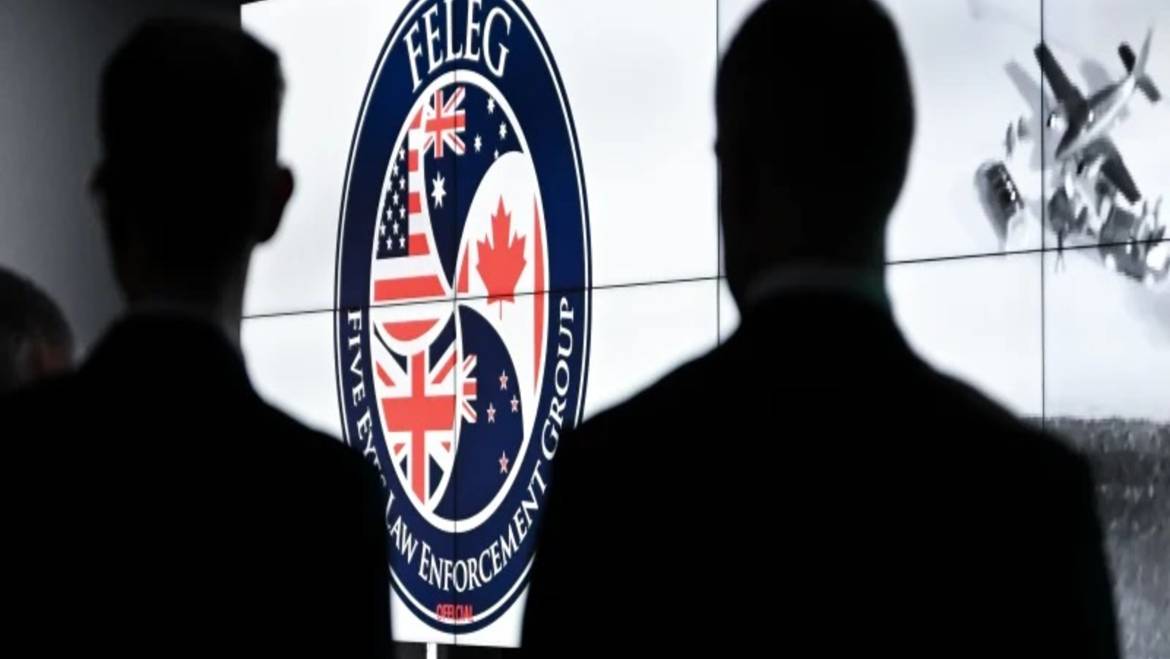Federal Policing works with many partners both domestically and internationally. Its mandate and responsibilities mean that it regularly interacts with allies and international policing organizations, other government departments and agencies, and international police forces and law enforcement. These relationships serve investigative purposes and support public safety and international cooperation.
Federal Policing collaborates with partners on all operational, strategic and administrative issues within its purview. Collaboration within the domain of national security includes work related to the terrorist listing regime, ideologically motivated violent extremism, extra-territorial investigations, and elections security. Collaboration with respect to transnational and serious organized crime includes work related to financial crime, illegal firearms, human trafficking, international drug trafficking, border integrity and hardened secure communications. Finally, within the area of cybercrime, collaboration includes work related to botnets, disrupting infrastructure, and ransomware.
International
Federal Policing is an active member in international fora such as the Five Eyes, INTERPOL and Europol. Its work with the Five Eyes is the most significant of these three, and is mostly conducted within the Five Eyes Law Enforcement Group (FELEG). This group’s membership includes the Federal Bureau of Investigation, the Drug Enforcement Administration, Immigration and Customs Enforcement from the United States, the National Crime Agency and the Metropolitan Police from the United Kingdom, the Australian Criminal Intelligence Commission, the Australian Federal Police, and the New Zealand Police. FELEG’s role is to facilitate information and intelligence sharing and global criminal investigations. It sets its strategic direction through consensus and its leadership rotates every two years. The current chair of FELEG is the Commissioner of the Australian Federal Police.
Federal Policing participates in a number of FELEG working groups. These include the Criminal Intelligence Advisory Group, which focuses on organized crime and drug-related operations; the Money Laundering Group; the Cyber Crime Working Group, which tries to identify sophisticated cyber criminals and criminal services; and the Technical Working Group, which facilitates the technical exchange of information.
Federal Policing also maintains international partnerships through its Global Initiatives Program and the International Policing Program. Based at RCMP Headquarters, the Global Initiatives Program deploys, directs and supports 14 criminal intelligence analysts around the world to increase RCMP visibility, reach and influence. While the majority of the analysts are located in Canadian missions in select countries, three are embedded with strategic partners in Washington, D.C. (Drug Enforcement Administration), The Hague, Netherlands (Europol), and Canberra, Australia (Australian Federal Police).
Through the International Policing Program, Federal Policing assists with building law enforcement capacity abroad. Often, this assistance takes the form of courses that Federal Policing delivers on subjects such as money-laundering investigative techniques, countering violent extremism, cyber fundamentals, child exploitation interviewing techniques, and outlaw motorcycle gangs. These courses have been offered in a range of countries including Mali, the West Bank, Iraq, the Central African Republic, and Haiti. Federal Policing also maintains a host of international partnerships through its International Network, which is housed within the International Policing Program. The Network is comprised of Liaison Officers and civilian analysts overseas who facilitate the sharing of information with foreign law enforcement agencies, with the goal of disrupting transnational crime with a nexus to Canada. More specifically, the International Network: facilitates major Canadian investigative inquiries in foreign countries; develops and maintains the exchange of criminal and national security intelligence between the RCMP and approved foreign authorities; provides assistance to foreign agencies in investigations that affect Canada; and coordinates and assists Canadian police investigators travelling abroad on duty.
Federal Policing works with INTERPOL and Europol. Participation in INTERPOL allows Federal Policing to exchange information with INTERPOL’s 195 member countries and gather information on individuals or crime groups via INTERPOL’s enhanced criminal databases. Federal Policing is involved in some INTERPOL-led projects and initiatives, such as an INTERPOL- and Italian-led project to combat ‘Ndrangheta, an Italian organized crime group with links to Canada. Federal Policing also participates in Europol. It has dedicated resources posted to Europol to combat migrant smuggling and human trafficking and cybercrime. It also participates in Europol regarding Foreign Terrorist Fighters and Ideologically-Motivated Violent Extremism, war crimes and corruption, and major money laundering files, including those related to cryptocurrency and sanctions emanating from Russia’s invasion of Ukraine. Federal Policing assesses that its participation in Europol is of significant benefit, because of the value of the information exchanged and the close working environment.
Finally, Federal Policing maintains relationships with various law enforcement partners around the world. It has over 300 memoranda of understanding with foreign law enforcement partners with the goal of developing partnerships and trust, and working towards shared policing objectives.


Add Comment